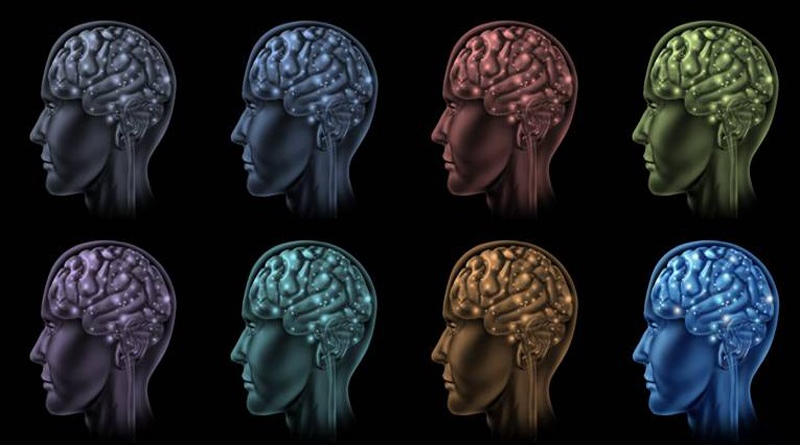
Mental Health & Relationships: Warning Signs of Dating a Narcissist
By Darlene Lancer, JD, MFT
People are easily charmed by a narcissist, especially codependents. Narcissists can be beguiling and charismatic. In fact, one study showed that their likable veneer was only penetrable after seven meetings. I’ve had a number of clients who claimed that the courtship with their narcissistic spouse was wonderful, and that abuse only began following the wedding. However, with greater insight, these clients admitted that there were signs that they’d overlooked. Let’s take a look at warning signs to look out for to prevent stress and heartache down the road.
Blind Spots when Dating a Narcissist
There are unconscious explanations why you might be attracted to a narcissist. Here are some reasons why you might not recognize a narcissist:
- Sexual attraction. The greater the physical attraction and sexual intensity, the easier it is to ignore red flags―why lust is blind.
- Seduction Narcissists are skilled manipulators. Some can be quite seductive, and not just sexually. They may be adept listeners and communicators or allure you with, flattery, self-disclosure, and vulnerability―just the opposite of what you might expect from a narcissist.
- Idealization. Often narcissists are very accomplished, good-looking, powerful, and/or multi-talented. They’re easy to idealize especially if you feel inferior. Codependents are more likely to idealize someone they admire, especially narcissistic traits that they themselves lack, such as power and boldness.
- Familiarity If you had a narcissistic parent, being with a narcissist will feel familiar―like family. This unconsciousness attraction is often referred to as “chemistry.” With therapy, you’ll easily spot someone who is abusive or self-centered. You might even be repelled instead of attracted to a narcissist.
- Codependency If you have low self-esteem or are codependent, you may be unaware of your feelings, which can guide you. You may not feel entitled to respect and having your needs and wants met. Most codependents tend to accommodate and people-please other people―a perfect fit for a narcissist. This predisposition is stronger in early dating when you’re trying to make a good impression. Thus, you might overlook or rationalize feelings of discomfort and anxiety that signal trouble. If something does bother you, you won’t speak up about it and try to forget it.
Red Flags when Dating a Narcissist
Below are some red flags to look out for. Having a few traits doesn’t mean that someone is diagnosable with NPD―a narcissistic personality disorder―but they do not bode well for a fulfilling relationship.
- Self-centeredness For narcissists, the world revolves around them. When you talk to your date, is he or she interested in getting to know you, or talk only about themselves? This is a tell-tale sign that you will feel invisible in the relationship. Some narcissists are skilled communicators, may be good at short-term intimacy and make you feel like a king or queen; but eventually, they don’t keep up that act. Look for other signs of lack of consideration: Walking far ahead of you, disregarding your boundaries and needs, or frequently interrupting conversations to take calls from other people.
- Arrogance Narcissists feel superior to other people, and can be rude or abusive when don’t get what they want. This is revealed in their behavior and how they talk about themselves and others. Is your date a fault-finder? One day he or she may be bashing you. Notice how he or she treats waitresses, car hops, and vendors or acts superior to lesser-status groups, such as minorities, immigrants, or people of less means or education?
- Entitlement This trait is a give-away. It reveals how narcissists think that they’re the center of the universe. They not only believe they’re special and superior to others, but also that they deserve special treatment and that rules don’t apply to them. A relationship with this person will be painfully one-sided, not a two-way street. Narcissists are only interested in getting what they want and making the relationship work for them.
- Bragging and need for admiration Narcissists need constant validation, appreciation, and recognition. They brag and exaggerate about themselves and their accomplishments. Does your date brag that his or her school is the best, and require the best car, the best table at the best restaurant, the finest wines, and wear expensive labels, or name drop public figures they know?
- Control and manipulation Narcissists put their needs first. Their lack empathy may show when planning a date. Initially, they may want to please you to win you over. Once they do, they want to please themselves and will be emotionally unavailable and keep you at a distance.
Some Tips
Listen to what your dates say about themselves and past relationships. Pay attention to hints of serious commitment issues, vindictiveness, criminality, addiction, or abuse. Notice if you feel anxious or uncomfortable, pressured, controlled, ignored, or belittled.
Find out about narcissistic relationships, why narcissists are codependent, and why they’re drawn to codependents and vice versa. In recovering from codependency, you’ll build self-esteem, your estimation of your worth will rise, and you’ll expect to be considered, listened to, and treated well. You’ll convey an expectation of respect by maintaining healthy boundaries, by being assertive about your opinions, feelings, needs, and wants, rather than people-pleasing. Learn about Dealing with a Narcissist.
©Darlene Lancer 2017
.
This article was originally published, in a longer version, here, and is being republished with the author’s kind permission.
Darlene Lancer is a Licensed Marriage and Family Therapist and expert on relationships and codependency. She’s the author Conquering Shame and Codependency: 8 Steps to Freeing the True You and Codependency for Dummies and six ebooks, including: 10 Steps to Self-Esteem, How To Speak Your Mind – Become Assertive and Set Limits, Dealing with a Narcissist: 8 Steps to Raise Self-Esteem and Set Boundaries with Difficult People and Freedom from Guilt and Blame – Finding Self-Forgiveness, also available on Amazon. Ms. Lancer has counseled individuals and couples for 30 years and coaches internationally. She’s a sought after speaker in media and at professional conferences. Her articles appear in professional journals and Internet mental health websites, including on her own, www.whatiscodependency.com, where you can get a free copy of “14 Tips for Letting Go.”




